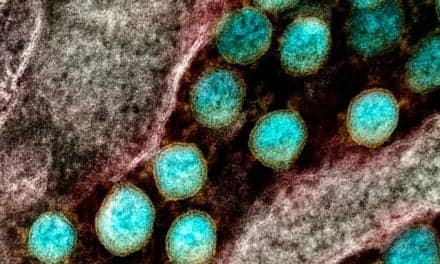The National Foundation for Infectious Diseases (NFID) issued a Call to Action today urging stronger public health focus and increased awareness of respiratory syncytial virus (RSV) in the United States. The report, Call to Action: Reducing the Burden of RSV across the Lifespan, addresses the impact of RSV and outlines key strategic priorities to drive progress in RSV surveillance, diagnosis, prevention, and treatment.
RSV is a common respiratory illness that can pose a serious public health threat for all age groups. While RSV is usually associated with mild, cold-like symptoms, it can be serious and can lead to severe illness, even in otherwise healthy people. Premature infants, young children with heart and lung disease, adults with chronic health conditions, and older adults are at higher risk of serious complications. RSV typically circulates seasonally with other viruses like influenza but the COVID-19 pandemic has impacted normal transmission patterns of RSV, leading recently to more atypical exposures and infections. These unseasonal transmission patterns led the Centers for Disease Control and Prevention (CDC) to issue a health alert in June 2021 warning healthcare professionals about increased RSV activity, and encouraging broader testing for RSV among patients with acute respiratory illness.
Each year in the US, RSV is estimated to cause approximately 58,000 hospitalizations and an estimated 100 to 500 deaths among children younger than age five years. RSV is also increasingly recognized as a significant cause of respiratory illness in adults age 65 years and older, with an estimated 177,000 hospitalizations and 14,000 deaths annually in the US. Despite the concerning statistics, experts who participated in a virtual multidisciplinary NFID roundtable in November 2021 noted that RSV remains underreported and widely underappreciated as a public health threat, even among healthcare professionals. NFID experts believe that the current environment of heightened awareness of the dangers of respiratory illness, as a result of the COVID-19 pandemic, also provides a platform to elevate understanding of RSV and the need for new approaches to prevention and treatment.
“There are compelling reasons why we must prioritize RSV prevention and treatment,” said NFID Medical Director William Schaffner, MD. “New vaccines and monoclonal antibodies in development, for the first time in 20 years, promise to improve RSV prevention and treatment. Amid the COVID-19 pandemic, it is critical for healthcare professionals, policymakers, and the public to better understand RSV, and the need for a strong and rapid response.”
The NFID Call to Action highlights the understated burden of RSV across the lifespan and includes strategies to address gaps in diagnostic testing and surveillance, existing health disparities, lack of currently available treatment and prevention options, and the potential impact of new interventions on the horizon after decades of limited innovation.
“Raising awareness about the burden of RSV infection is an important first step to mitigate the virus as a public health concern in the US,” said NFID President-Elect Patricia (Patsy) A. Stinchfield, RN, MS, CPNP. “The more we understand the true impact of RSV, the better prepared we are to diagnose and treat it, especially in light of new and innovative tools in development.”
awareness of respiratory syncytial virus










